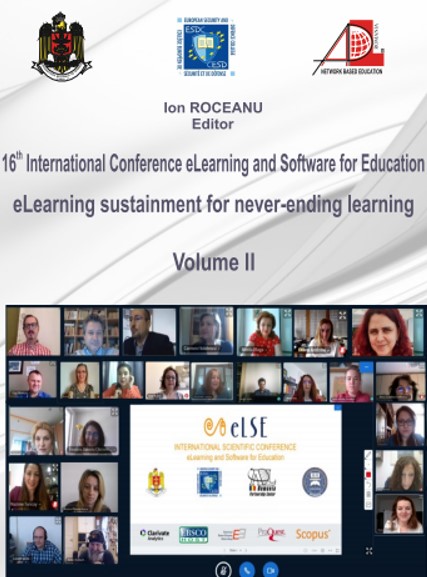MACHINE TRANSLATION IN THE FOREIGN LANGUAGE CLASS
MACHINE TRANSLATION IN THE FOREIGN LANGUAGE CLASS
Author(s): Voichita Alexandra GhengheaSubject(s): Foreign languages learning, Language acquisition, Translation Studies, Distance learning / e-learning
Published by: Carol I National Defence University Publishing House
Keywords: CALL; CLIL; e-learning; error analysis; FL teaching; MT (machine translation);
Summary/Abstract: E-learning has become nowadays a common educational practice especially at tertiary level. For FL-teaching at technical universities CALL (Computer Aided Language Learning) is almost a must since it combines technology with individual language learning experiences. The benefits of CALL are evident as it fosters student centered perspective, interactive learning, learner autonomy, learner motivation etc. This paper addresses the role of CALL as an alternative methodological approach of a larger coverage than traditional language teaching, paying special attention to FL acquisition by engineering students. As the results of this study will show, the FL learning outcomes of students are even improved when combined with the CLIL-approach (Content and Language Integrated Learning ). After discussing machine translation (MT) as opposed to human translation, the author concentrates on a project work (case study) focused on MT of German texts into Romanian and conducted with Bachelor students of the University "Politehnica" of Bucharest. Two corpora were compiled, one containing German nonfictional texts/subject oriented texts and the other one German specialized texts. The goals of the project work were: a) raising students' awareness about the main issues of MT (benefits and challenges); b) sensitizing them to differences between human translation and MT; c) making students aware of the benefits of MT as a tool in developing on the one hand specific study skills and on the other hand future job skills. The project was conducted with two groups of students and covered 4 stages, namely: 1.) introductory lesson about MT and instructions referring to the translation tasks; 2.)error analysis and step by step guided evaluation of the text samples translated by students online; 3.) students' solutions for revising and improving MT and 4.) conclusions. Finally the author asserts that there are a lot of arguments which support the idea that the skills engineering students have acquired in the FL (via CLIL) and in an e-learning environment (CALL) are going to be of great help for their future career development.
Journal: Conference proceedings of »eLearning and Software for Education« (eLSE)
- Issue Year: 16/2020
- Issue No: 02
- Page Range: 369-374
- Page Count: 6
- Language: English

